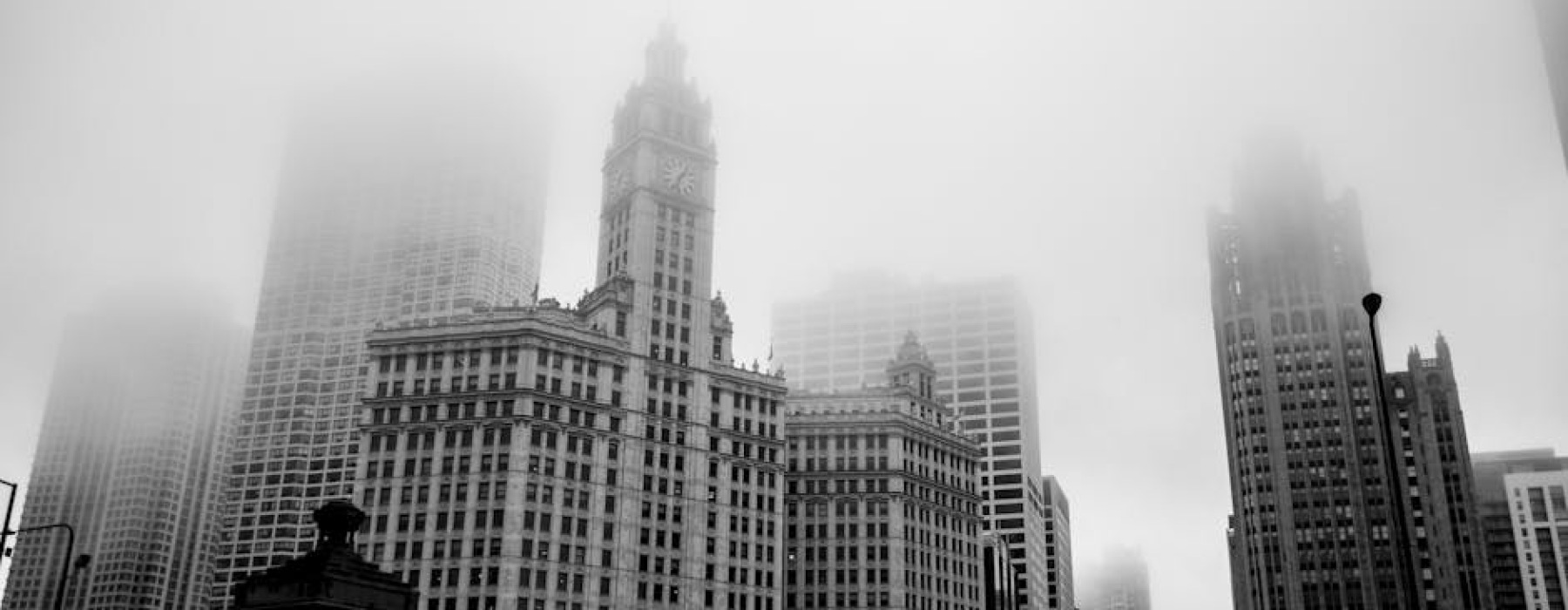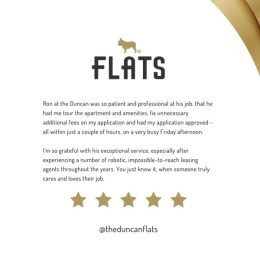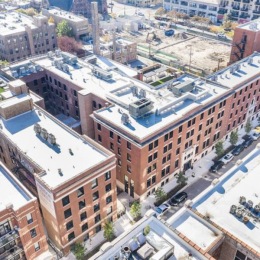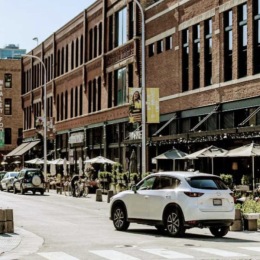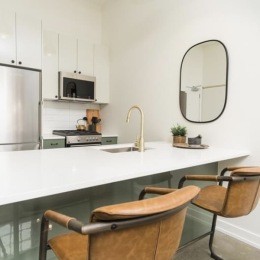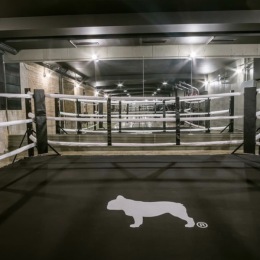The West Loop Renaissance: Chicago's Hottest Real Estate District
Chicago West Loop real estate has transformed from an industrial meatpacking district into one of the city's most coveted commercial and residential areas. For businesses seeking commercial properties in this dynamic neighborhood, here's what you need to know:
- Location: Bordered by the Chicago River (east), Ashland Avenue (west), Grand Avenue (north), and Eisenhower Expressway (south)
- Commercial Options: Converted warehouse lofts, modern office towers, mixed-use developments, ground-floor retail spaces
- Key Business Districts: Fulton Market, Randolph Street "Restaurant Row," Greektown
- Major Corporate Anchors: Google, McDonald's headquarters, numerous tech startups
- Average Commercial Lease: Class A office space with modern amenities and convenient transit access
Few neighborhoods have undergone a change quite like the West Loop. What was once dominated by industrial warehouses, meatpacking facilities, and food wholesalers has evolved into a vibrant commercial hub where Fortune 500 companies neighbor award-winning restaurants and luxury residential developments.
The district offers an exceptional blend of historic character and modern amenities that appeals to businesses seeking a dynamic urban environment. Converted timber lofts with industrial charm sit alongside sleek glass towers, creating a unique architectural landscape that attracts creative companies, tech firms, and culinary enterprises alike.
"The West Loop has the tightest housing inventory in the whole city," according to a Redfin study, and the same competitive dynamics apply to commercial spaces, where demand consistently outpaces supply. This intense interest has driven rapid development, with over 6,500 new residential units planned or under construction, many with ground-floor commercial components.
For businesses looking to establish themselves in this thriving district, acting quickly is essential. Commercial properties often receive multiple offers, and those with prime locations near Restaurant Row or major transit hubs command premium rates.
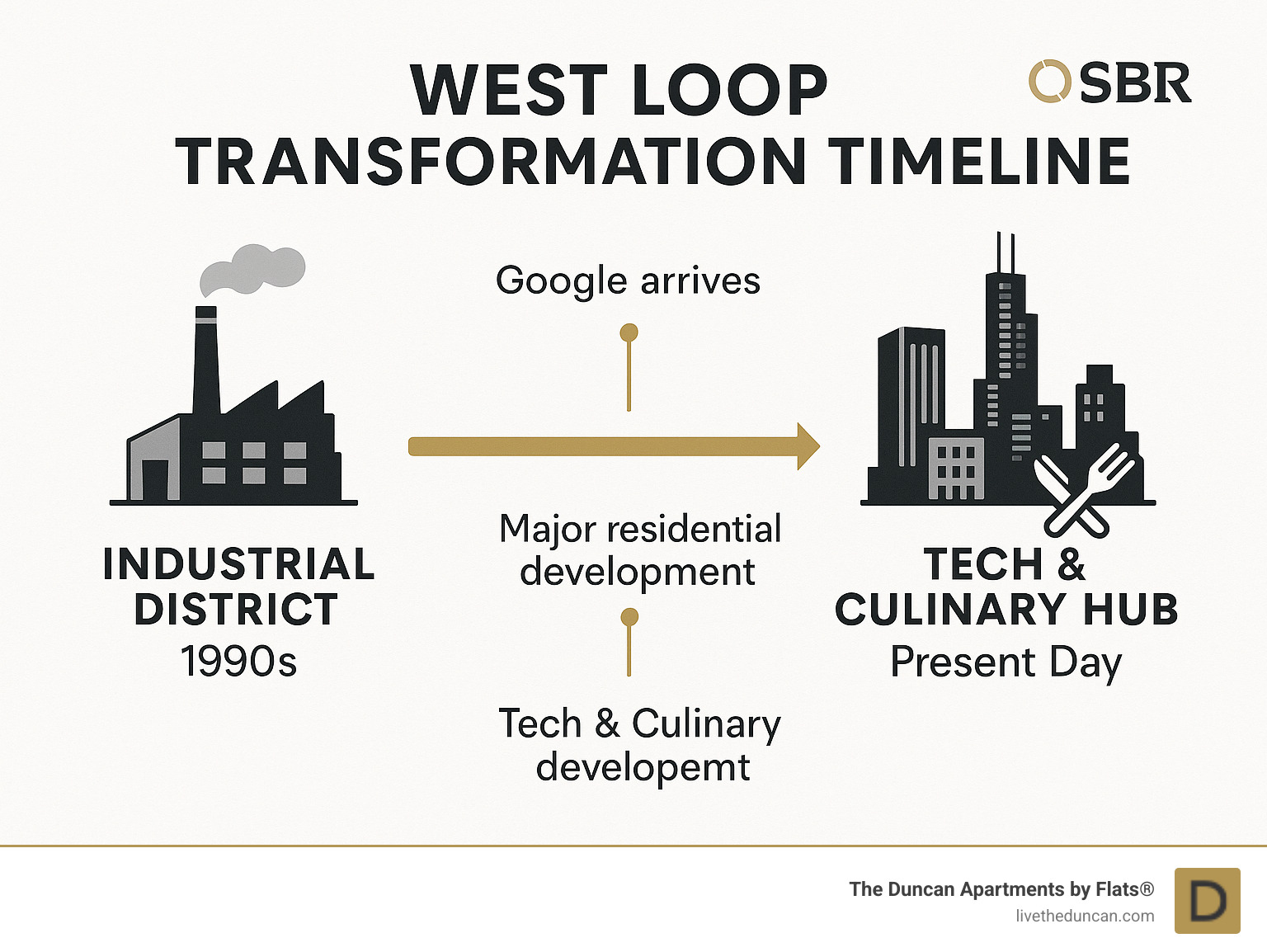
Where Exactly Is Chicago's West Loop?
Nestled just west of downtown, the West Loop sits in what might be Chicago's most perfectly positioned neighborhood. It's close enough to the action to feel the city's pulse, yet has enough breathing room to develop its own unmistakable character.
When friends ask "where exactly is the West Loop?", I tell them to look for the area boxed in by four distinct borders: the shimmering Chicago River to the east, busy Ashland Avenue marking the western edge, Grand Avenue creating the northern boundary, and the rumbling Eisenhower Expressway (I-290) serving as the southern border.
What makes Chicago West Loop real estate so special isn't just its location, but the neighborhood's fascinating sub-districts, each with its own personality:
Fulton Market tells the story of Chicago's change in brick and steel. Once filled with the sounds and smells of meatpacking plants, it's now home to sleek tech offices and creative spaces where ideas, not meat, are processed daily.
Walking down Randolph Street, your senses are immediately engaged by what locals affectionately call "Restaurant Row." The aromas wafting from some of the city's most celebrated kitchens make this stretch a pilgrimage site for food lovers.
Greektown adds Mediterranean flair along Halsted Street, where generations of families have served authentic cuisine and preserved cultural traditions that enrich the neighborhood's mix.
The broader Near West Side area encompasses educational institutions and medical facilities that bring academic energy and healthcare innovation to the community.
What I love most about the West Loop is how it wears its history proudly. The neighborhood's industrial roots remain visible in exposed brick walls, timber beams, and soaring ceilings that once echoed with factory work. These architectural elements now frame modern living and working spaces, creating a unique aesthetic you simply can't find elsewhere in Chicago.
The New Identity of Chicago West Loop real estate
The change of the West Loop reads like a fascinating urban renewal story – one written in steel, glass, and repurposed brick.
Beginning in the mid-90s, visionary developers saw potential in the neighborhood's abandoned warehouses. The 1000 West Washington Lofts building exemplifies this pioneering spirit – what was once a 1910 industrial bakery now houses 183 distinctive residences where the aroma of fresh bread has been replaced by the scent of new possibilities.
The neighborhood hit a turning point when McDonald's chose the West Loop for its global headquarters in 2018. The golden arches brought approximately 2,000 employees to a gleaming campus built on the former site of Oprah Winfrey's Harpo Studios, signaling to the corporate world that the West Loop had arrived.
Google's decision to establish its Chicago headquarters in Fulton Market in 2015 sparked a tech revolution in the neighborhood. Like a digital pied piper, Google's presence attracted a wave of technology companies, creating demand for both innovative office spaces and homes for their workforce.
The culinary explosion along Restaurant Row has made the West Loop a destination for food enthusiasts worldwide. Award-winning chefs have transformed former industrial spaces into dining experiences that draw visitors from across the globe, creating a ripple effect of opportunity for retail and service businesses throughout the neighborhood.
As Ruth Jones, a longtime West Loop realtor, perfectly puts it: "What was once all warehouses and meatpacking facilities has completely transformed. Now we have Fortune 500 companies, boutique hotels, and some of the best restaurants in the country all within a few blocks of each other."
Housing Landscape: Lofts, Condos & Class-A Towers
The Chicago West Loop real estate market is a fascinating mix of living options, each with its own unique character and charm. Walking through the neighborhood, you'll notice an architectural diversity that tells the story of the area's evolution from industrial hub to urban hotspot.
Former warehouses and factories have found new life as stunning timber lofts, where exposed brick walls, soaring timber beams, and generous ceiling heights create spaces with undeniable character. These industrial conversions offer a tangible connection to the neighborhood's gritty past while providing thoroughly modern living spaces.
For those who prefer newer construction, the West Loop delivers with sleek mid-rise condominiums typically ranging from 5-12 stories. These buildings blend seamlessly into the neighborhood fabric while offering contemporary finishes and lifestyle-enhancing amenities that today's urban dwellers expect.
The skyline continues to evolve with luxury rental towers that have redefined upscale city living. These high-rise havens feature concierge services, designer finishes, and amenity packages that rival high-end resorts – from state-of-the-art fitness centers to stunning rooftop lounges with panoramic city views.
Tucked away on quieter side streets, you'll find a limited collection of single-family rowhouses that offer a more traditional living experience, complete with the privacy and space that's increasingly precious in urban settings. These homes represent some of the most sought-after properties in the neighborhood.
Many West Loop buildings accept the mixed-use philosophy, with vibrant commercial spaces at street level and residential units above. This arrangement creates a truly walkable community where residents can live, work, and play without ever needing to leave the neighborhood.
The 1000 West Washington Lofts perfectly illustrate the West Loop's change story. What once housed the busy production lines of Nabisco's industrial bakeries now contains 183 unique residences, each with its own character thanks to the 160 different floor plans created during the conversion process.
For those seeking the perfect blend of industrial-inspired design and modern convenience, The Duncan Apartments by Flats® stands as a shining example. These thoughtfully designed residences honor the neighborhood's architectural heritage while providing all the comforts today's residents desire, including an indoor pool that beckons year-round.

Finding the Right Fit in Chicago West Loop real estate
Finding your perfect West Loop home means considering what truly matters in your daily life. The neighborhood offers remarkable variety in living spaces – from cozy studios perfect for singles to expansive penthouses for those who entertain frequently and multi-level live-work lofts ideal for entrepreneurs. At The Duncan, the spacious floor plans provide that essential breathing room that makes working from home not just possible, but pleasant.
In this dense urban setting, outdoor space has become the ultimate luxury. Balconies, terraces, and roof decks aren't just nice-to-have features – they're prized retreats that significantly boost property values. This outdoor premium became even more pronounced following the pandemic, when private outdoor space transformed from amenity to necessity for many urban dwellers.
The price-per-square-foot story in the West Loop continues to impress real estate watchers. Market data shows properties commanding up to $400 per square foot in prime locations, with larger three-bedroom units typically fetching the highest rates due to their relative scarcity in the neighborhood.
Today's developments understand that amenities are no longer extras but essentials. Newer buildings compete to offer the most compelling lifestyle packages – from resort-style pools and comprehensive fitness centers to dedicated co-working spaces and pet-friendly features like dog runs and washing stations. The Duncan exemplifies this approach with its thoughtfully curated amenities designed specifically for today's urban lifestyle, including spaces perfectly suited for the remote work reality.
For those considering combining living and working space, it's worth noting the various zoning designations throughout the West Loop. Many buildings offer commercially-ready spaces with appropriate infrastructure for retail, office, or service businesses, but understanding the specific zoning of your property is essential before launching any commercial venture.
Chicago West Loop Real Estate Market Snapshot 2024
The pulse of Chicago West Loop real estate is racing in 2024, with a market that continues to thrill sellers and challenge buyers. If you're looking to call this vibrant neighborhood home, you're facing one of the most competitive markets in the city.
The numbers tell a compelling story. Residential properties in the West Loop now fetch a median sale price of $470,000, while renters can expect to pay around $3,127 per month for their slice of this dynamic community. Properties don't linger long here—the average home spends just 64 days on market, with many going under contract in a mere 14 days. Sellers are celebrating too, as most properties command their full asking price, with list-to-sale ratios consistently hitting 99-100%.
Currently, house hunters have approximately 264 active listings to consider, but don't let that number fool you. The inventory moves quickly, especially for three-bedroom units, which have seen a significant surge in demand. In premium buildings, prices can reach up to $400 per square foot, reflecting the neighborhood's desirability and limited supply.
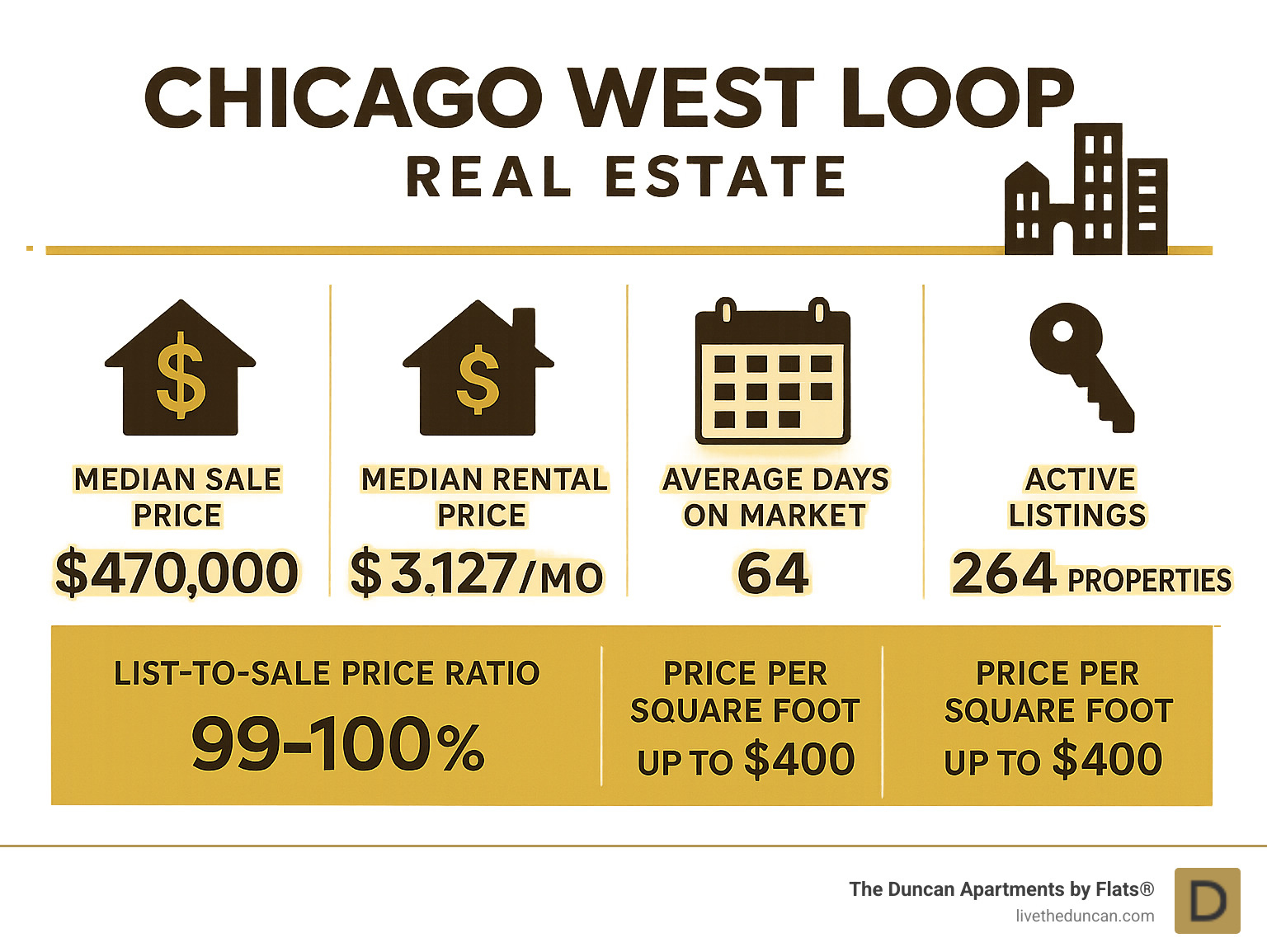
Want to see how the West Loop stacks up against its neighbors? The comparison is eye-opening:
| Metric | West Loop | River North | South Loop |
|---|---|---|---|
| Median Sale Price | $470,000 | $420,000 | $365,000 |
| Median Rent | $3,127 | $2,850 | $2,400 |
| Days on Market | 64 | 72 | 81 |
| Time to Contract | 14 days | 21 days | 28 days |
| List-to-Sale Ratio | 99-100% | 97% | 96% |
The West Loop consistently outperforms nearby neighborhoods across all key metrics, highlighting its position as Chicago's premier real estate hotspot.
Why Values Keep Climbing
"Things are going in a day. It's crazy," one local Realtor told DNA Info, painting a vivid picture of the market's intensity. "We're seeing multiple offers above asking price within hours of listing." This isn't hyperbole—it's the reality of Chicago West Loop real estate today.
Several factors fuel this remarkable growth. The neighborhood's physical boundaries—the Chicago River to the east, Ashland Avenue to the west, Grand Avenue to the north, and the Eisenhower Expressway to the south—create natural limits to expansion. With land at a premium and development space increasingly scarce, each property becomes more valuable.
Corporate giants continue to bet big on the West Loop, with companies like Google and McDonald's establishing headquarters here and bringing thousands of employees who prefer short commutes. Many of these professionals are happy to pay premium prices to live within walking distance of their offices.
The neighborhood's transit connectivity is another major draw. With easy access to the Blue, Green, and Pink CTA lines, plus proximity to Union Station and Ogilvie Transportation Center, West Loop residents enjoy unparalleled mobility throughout the city.
Perhaps most importantly, the West Loop has evolved into what one local developer describes as "a true live-work-play environment that commands premium prices because it offers an urban lifestyle that's increasingly in demand." As restaurants, shops, and cultural venues continue to flourish here, property values naturally follow suit.
Buying or Renting in a Hyper-Competitive Market
Let's face it—the Chicago West Loop real estate market moves faster than the L train at rush hour. With properties flying off the market and competition fierce, you'll need more than just luck to secure your dream space in this coveted neighborhood.
If you're looking to buy, preparation is your best friend. Start by getting pre-approved for financing before you even begin your search. In a market where properties can receive multiple offers within hours, having your financing ready shows sellers you mean business.
"I've seen buyers miss out on perfect properties because they waited just one day to schedule a showing," says a local real estate agent. "In the West Loop, same-day showings aren't just recommended—they're practically required."
When you find a place you love, be prepared to make your offer stand out. Many successful buyers include escalation clauses that automatically increase their bid to beat competing offers (up to a limit you set). Some are even waiving inspection contingencies or conducting pre-offer inspections to streamline the process. Working with lenders who know the West Loop market and can close quickly can give you another competitive edge.
For those exploring the rental market, The Duncan Apartments offers a more straightforward process, but even here, desirable units don't stay available for long. Be ready to make decisions quickly and have your application materials ready to go.
Commercial tenants face their own set of challenges. Consider being flexible with lease terms, including shorter initial agreements with extension options. Before touring spaces, prepare a detailed letter of intent outlining your proposed terms. Don't forget to negotiate build-out allowances for customizing spaces to your business needs, and always verify zoning compliance for your intended use.
Investors should take note of the monthly HOA fees in West Loop buildings, which typically range from $259 to $1,174—a significant factor that can impact your return on investment. The neighborhood's strong rental demand and premium rates make for attractive rental yield potential, especially in mixed-use properties that combine residential and commercial elements.
More info about 360 Virtual Tours
Navigating Contracts in Chicago West Loop real estate
Once you've found your perfect West Loop property, navigating the contract process requires attention to detail. Expect to provide substantial earnest money deposits—typically 3-5% of the purchase price—to show sellers you're serious about your offer.
Since Illinois is an attorney review state, having good legal representation is essential. Your attorney will help you steer contract terms and protect your interests throughout the transaction. While financing contingencies remain common, many buyers in competitive situations are waiving inspection and appraisal contingencies to make their offers more attractive. Closing timelines have also compressed, with 30 days or less becoming standard for well-qualified buyers.
For commercial leases, your letter of intent (LOI) should clearly outline proposed terms including lease duration and renewal options, rental rates and escalation schedules, tenant improvement allowances, responsibility for operating expenses, and signage rights.
At The Duncan Apartments, we understand the nature of the West Loop market. That's why our leasing process is designed to be straightforward and responsive, ensuring you can secure your ideal apartment without unnecessary stress or complications. We'll guide you through each step with the personal attention you deserve.
Beyond the Front Door: Lifestyle, Amenities & Future Developments
Step outside your door in the West Loop, and you'll find yourself immersed in one of Chicago's most dynamic neighborhoods – where historic industrial charm meets modern urban excitement.
Mary Bartelme Park offers a peaceful 2.7-acre retreat with its neat fountain plaza, dedicated dog park, and playful children's area – perfect for those sunny Chicago afternoons. Just a short walk away, the larger Union Park spans 13 acres and becomes the vibrant heart of summer festival season, hosting the acclaimed Pitchfork Music Festival that draws music lovers from across the country.
The West Loop's culinary scene is nothing short of legendary. Restaurant Row along Randolph Street showcases Chicago's gastronomic prowess with award-winning establishments like Girl & The Goat, Au Cheval (home to what many consider America's best burger), and the Mediterranean-inspired Avec. The trendy Fulton Market district has evolved from its meatpacking roots into a foodie paradise, anchored by the busy Time Out Market food hall where you can sample creations from the city's most innovative chefs under one roof.

Getting around couldn't be easier with the neighborhood's exceptional transit connectivity. With a remarkable Walk Score of 94 (earning it "Walker's Paradise" status), most daily errands can be handled on foot. Multiple CTA stations serving the Blue, Green, and Pink Lines connect residents directly to downtown, O'Hare Airport, and neighborhoods throughout the city. For those commuting to the suburbs, Ogilvie Transportation Center and Union Station are just minutes away.
The West Loop's change has been accelerated by major corporate relocations. Google's Midwest Headquarters occupies a reimagined cold storage building in Fulton Market, while McDonald's Global Headquarters brings approximately 2,000 employees to its custom-built campus. This corporate presence has created a thriving ecosystem for tech startups and established firms alike.
The skyline continues to evolve at an impressive pace, with over 6,500 new residential units planned or under construction. Noteworthy upcoming developments include the striking Fulbrix tower at 160 N. Elizabeth Street, featuring 375 luxury apartments and extensive amenities; the architecturally distinctive Embry at 21 N. May Street; the soaring 725 W. Randolph 52-story tower; and the impressive 1200 W. Fulton skyscraper that will dramatically reshape the neighborhood silhouette.
"The juxtaposition of mixed-material towers and historic low-rise gives West Loop a distinctive urban character," notes one architectural observer. "This level of construction activity is unusual even in large global cities."
A Full Breakdown of West Loop's Development Boom
Looking To Buy in the West Loop? Good Luck, Realtors Say
What's Next on the Skyline
The future of Chicago West Loop real estate continues to evolve through thoughtful planning and innovative approaches:
TIF Projects are pumping new life into neighborhood infrastructure, with Tax Increment Financing supporting improvements to streets, sidewalks, and public spaces that improve the pedestrian experience. Simultaneously, a strong green building push is changing the area's environmental footprint, with developments like Arkadia West Loop leading the charge toward LEED certification and sustainable urban living.
The neighborhood's economic diversity continues to grow through strategic office-to-lab conversions, adapting commercial spaces for life sciences and research uses. These conversions not only preserve historic buildings but create high-value employment opportunities beyond the traditional office sector.
City planners have implemented forward-thinking zoning updates that balance growth with neighborhood character, encouraging appropriate density while preserving the architectural elements that make the West Loop unique. These updates are complemented by ongoing transit improvements to CTA stations and pedestrian infrastructure that support the neighborhood's continued evolution.
The Duncan Apartments stands as a perfect example of the West Loop's bright future – blending modern luxury with respectful nods to the area's industrial past. With thoughtfully designed spaces that meet the needs of today's urban residents, The Duncan offers more than just a place to live – it's your gateway to experiencing everything this remarkable neighborhood has to offer.
Is the West Loop Right for You? Pros, Cons & Comparisons
Choosing a neighborhood in Chicago is more than just finding a place to live—it's about finding a community that matches your lifestyle. The Chicago West Loop real estate market has a distinct personality that might be your perfect match... or might not quite fit what you're looking for.
Let's take an honest look at what makes this neighborhood tick:
Pros:
The West Loop's dining scene is legendary for good reason. From Girl & the Goat to Au Cheval, you're surrounded by restaurants that people from across the city make special trips to visit. Imagine having your favorite chef-driven restaurant just a block from your front door!
Getting around couldn't be easier with multiple CTA lines (Blue, Green, and Pink) within walking distance. Plus, both Ogilvie Transportation Center and Union Station are nearby for Metra commuters. With a Walk Score of 94, most daily errands don't require a car at all.
The neighborhood has become a serious employment hub. When companies like Google and McDonald's choose to place their headquarters here, it says something about the area's appeal. Tech startups and creative agencies continue to flock to the area, putting career opportunities right at your doorstep.
The housing options in the West Loop tend to be modern and well-appointed. Whether you're looking at a converted timber loft or a brand-new luxury building like The Duncan Apartments, you'll find thoughtful design and contemporary finishes that many older Chicago neighborhoods can't match.
Cons:
Let's be real—the West Loop isn't cheap. The neighborhood's popularity has driven prices up significantly over the past decade. You'll pay a premium to live here compared to many other Chicago neighborhoods.
With great restaurants and bars comes... noise. Especially on weekends, the busy streets around Restaurant Row can get lively. If you're sensitive to urban sounds, you might want to consider a unit facing away from the main drags.
Parking in the West Loop can be a genuine challenge. Street parking is limited and often restricted, while dedicated parking spaces in buildings come at a significant cost. If you're a car owner, be prepared to factor this into your budget.
The tight inventory means you'll often face competition when trying to buy or rent. Properties can receive multiple offers within days (sometimes hours) of listing, which can be frustrating if you're not prepared to move quickly.
Construction cranes have become almost as common as street signs in parts of the neighborhood. While this signals healthy growth, it also means you might be living with construction noise and detours for the foreseeable future.

Neighborhood Comparisons:
Wondering how the West Loop stacks up against other popular Chicago neighborhoods?
When comparing the West Loop to River North, both offer that energetic city vibe, but they have distinct personalities. The West Loop retains more of its industrial character with wider streets and more spacious floor plans, while River North puts you closer to Michigan Avenue shopping and tourist attractions.
The South Loop generally gives you more square footage for your dollar and better access to lakefront parks and museums. However, the West Loop wins handily when it comes to dining options and has a more established feel to its streets and public spaces.
Fulton Market and the West Loop share a border and many characteristics, sometimes making it hard to tell where one ends and the other begins. Generally speaking, Fulton Market represents the newer frontier of development with more construction activity, while the West Loop proper has more established infrastructure and community amenities.
For businesses looking at commercial space, the Chicago West Loop real estate market is particularly well-suited to creative industries, tech companies, culinary enterprises, and professional service firms. The neighborhood's energy, transit access, and concentration of talent make it an ideal home for forward-thinking businesses.
At The Duncan Apartments, we've designed our community to accept all the West Loop's advantages while creating a peaceful retreat from its challenges. Our residents enjoy the perfect balance: all the excitement of this dynamic neighborhood with a serene home base to return to at day's end.
Frequently Asked Questions about Chicago West Loop Real Estate
What are the exact neighborhood boundaries?
When you're exploring Chicago West Loop real estate, it helps to know precisely where this sought-after neighborhood begins and ends. The West Loop has clearly defined boundaries that give it a distinct identity:
- East: Chicago River
- West: Ashland Avenue
- North: Grand Avenue
- South: Eisenhower Expressway (I-290)
Within this vibrant rectangle, you'll find several character-filled sub-districts including the trendy Fulton Market, the culturally rich Greektown, and the area sometimes called West Loop Gate closer to the highway.
One quick tip from our team at The Duncan: Always double-check the exact location when browsing listings. Some real estate marketers might stretch these boundaries a bit, particularly westward, to capitalize on the West Loop's desirability. A property listed as "West Loop Adjacent" or "West Loop West" might actually be in a neighboring community.
How do West Loop prices compare to nearby areas?
The West Loop does command premium prices compared to many Chicago neighborhoods, but the value proposition makes sense when you consider what you're getting.
West Loop vs. River North: Expect to pay about 10-15% more per square foot in the West Loop than in River North. The tradeoff? West Loop spaces typically offer more generous floor plans and that coveted industrial character with high ceilings and unique architectural details.
West Loop vs. South Loop: The West Loop commands approximately 25-30% higher prices than comparable South Loop properties. The premium reflects the more established restaurant scene and vibrant business ecosystem.
West Loop vs. The Loop: Surprisingly, the West Loop offers about 10-15% lower prices than The Loop proper, while providing more neighborhood character and lifestyle amenities. You'll feel more like you're in a community than a business district.
For businesses considering commercial space, a similar pattern applies. West Loop Class A office spaces fetch rates comparable to downtown, while creative loft spaces offer unique environments with character you simply can't find elsewhere.
Are there opportunities for commercial owner-users?
Yes! The West Loop offers several exciting options for businesses looking to purchase rather than lease their space.
Commercial Condominiums are increasingly available, particularly on ground floors of mixed-use developments. These spaces give businesses the stability of ownership while benefiting from the building's residential component driving foot traffic.
Live-Work Spaces with flexible zoning accommodate both residential and commercial uses – perfect for creative professionals, consultants, or small business owners who want to eliminate their commute entirely.
For more established businesses, Small Mixed-Use Buildings with ground-floor commercial and upstairs residential units work beautifully for operations with on-site owner/operators. These vintage buildings often retain charming architectural details that create an inviting atmosphere for clients.
Entrepreneurs with vision might consider Adaptive Reuse Opportunities – former industrial buildings that can be converted to specific business uses. These spaces offer the chance to create something truly unique.
A word of caution: these opportunities typically move quickly in today's market. Working with a commercial broker who specializes in the West Loop is highly recommended for businesses serious about staking their claim in this dynamic neighborhood.
While we at The Duncan Apartments focus on residential rentals, our deep neighborhood knowledge allows us to connect commercial clients with appropriate resources for finding their perfect West Loop business location.
Conclusion
The Chicago West Loop real estate market truly stands as one of Chicago's crown jewels – a neighborhood that has masterfully transformed from industrial roots into a vibrant urban haven where historic character and modern luxury coexist beautifully.
If you're considering making the West Loop your home or business location, understanding the competitive landscape is crucial. Properties here don't just sell – they fly off the market, often with multiple offers above asking price. Success in this neighborhood belongs to those who come prepared: financing secured, decisions ready to be made, and a willingness to act quickly when the right opportunity presents itself.
What makes the West Loop so special? It's a perfect storm of desirability factors. There's the exceptional transit connectivity that puts the entire city within easy reach. The world-class dining scene continues to draw food enthusiasts from across the globe. Major corporate anchors like Google and McDonald's have cemented the area's business credentials. And perhaps most importantly, there's that distinctive urban character – the converted warehouses, the timber lofts, the industrial details that simply can't be replicated elsewhere in Chicago.
The neighborhood's evolution shows no signs of slowing, with thousands of new residential units in development and commercial projects that will only improve the West Loop's appeal. Whether you're drawn to historic timber lofts with their exposed brick and soaring ceilings, or prefer the sleek amenities of a modern high-rise, the West Loop offers remarkable diversity in its housing options.
At The Duncan Apartments by Flats®, we're proud to be woven into the fabric of this extraordinary neighborhood. Our thoughtfully designed residences offer the perfect blend of modern style and comfort, with spacious floor plans and luxury amenities that complement the West Loop's energetic vibe. We've created a community where you can truly accept everything this special neighborhood has to offer.
Ready to experience West Loop living for yourself? We recommend spending a day exploring the neighborhood – stroll Randolph Street's Restaurant Row, visit Mary Bartelme Park, and get a feel for the area's unique energy. Then, consider these factors in your decision:
- Location priorities – proximity to work, transit, or favorite restaurants
- Space requirements – from cozy studios to expansive three-bedrooms
- Must-have amenities – from pet-friendly policies to rooftop spaces
- Investment potential – the neighborhood's strong appreciation history
- Lifestyle alignment – urban energy versus quieter residential blocks
The West Loop welcomes those who appreciate its distinctive character, boundless energy, and limitless potential. Whether you're establishing a business or creating a home, this neighborhood offers a truly unparalleled Chicago experience.
